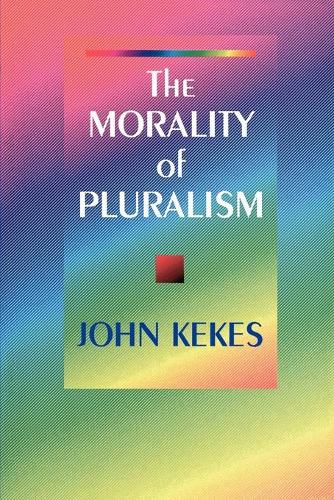
The Morality of Pluralism
(Paperback)
Publishing Details
The Morality of Pluralism
By (Author) John Kekes
Princeton University Press
Princeton University Press
4th June 1996
United States
Classifications
Professional and Scholarly
Non Fiction
Political science and theory
171.7
Physical Properties
Paperback
238
Width 197mm, Height 254mm
340g
Description
Current controversies about abortion, the environment, pornography, AIDS, capital punishment, and similar issues naturally lead to the question of whether there are any values that can be ultimately justified, or whether values are simply conventional. John Kekes argues that the present moral and political uncertainties are due to a deep change in our society from a dogmatic to a pluralistic view of values. Dogmatism is committed to there being only one justifiable system of values. Pluralism recognizes many such systems, and yet it avoids a chaotic relativism according to which all values are in the end arbitrary. Maintaining that good lives must be reasonable, but denying that they must conform to one true pattern, Kekes develops and justifies a pluralistic account of good lives and values, and works out its political, moral, and personal implications. The author defines values as possibilities whose realization would make lives good. He recognizes that their realization is difficult, especially since it involves choices among many, often conflicting, values. He argues, however, that living a good life requires a resolution of these conflicts, although reasonable resolutions are themselves plural in nature. His central claim is that pluralism is both reasonable and a preferable alternative to dogmatism and relativism.
Reviews
"Kekes's articulation of pluralism has a powerful suppleness. The consequences of adopting such an understanding of pluralism in the political sphere are genuinely thought-provoking."--Stephen Mulhall, The Times Literary Supplement "In this eloquent work, Kekes proposes an apology for moral pluralism... He painstakingly analyzes the radicality of moral conflict, which cannot be masked by resort to facile monisms. Further, he carefully sketches a reasonable approach to the practical resolution of value conflicts in the individual and the political orders... [H]e provides a remarkable analysis of moral imagination as the locus of possible moral and aesthetic values, the rich horizon of our actual pluralism."--John J, Conley, S.J., Theological Studies "Kekes's presentation of pluralism is the first sustained account of an important new moral theory and a formidable attempt to refute the claim that 'our morality is disintegrating.'"--Choice
Author Bio
John Kekes is Professor of Philosophy and Public Policy at the State University of New York, Albany. He is author of Moral Tradition and Individuality (Princeton) and Facing Evil (Princeton).
